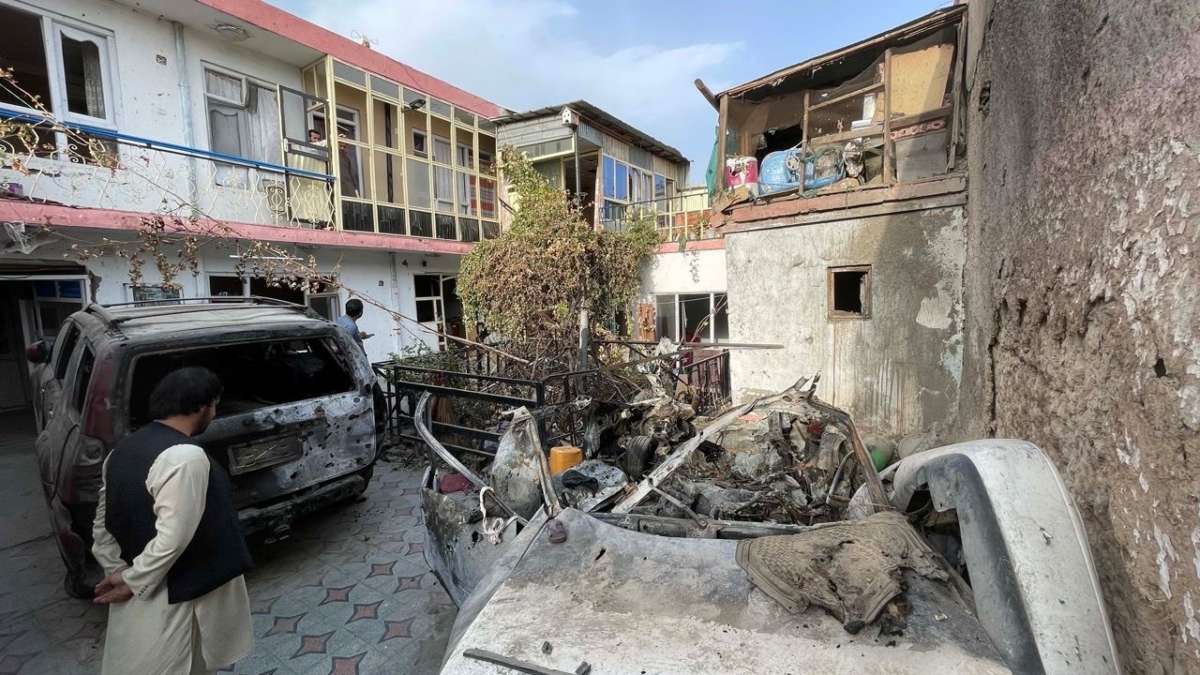International policymakers pledged about $1 billion in aid for Afghanistan Monday following a plea from United Nations Secretary-General António Guterres for immediate funding to protect Afghan children and other vulnerable people from starvation — but just 6% was pledged by the country which led Afghanistan into two decades of war before withdrawing all troops at the end of August.
The U.S. State Department and U.S. Agency for International Development (USAID) announced the country would direct $64 million to Afghanistan to “provide lifesaving support directly to Afghans facing the compounding effects of insecurity, conflict, recurring natural disasters, and the Covid-19 pandemic.”
Guterres had appealed to the international community for at least $606 million, warning that Afghans now “face perhaps their most perilous hour” after the 20-year U.S. occupation.
Since the Taliban took control of the country last month, the Afghan population of 38 million people has been cut off from aid projects run by the World Bank, International Monetary Fund payments, and U.S.-controlled assets in Afghanistan’s central bank.
“Even before the dramatic events of the last weeks, Afghans were experiencing one of the worst humanitarian crises in the world,” said Guterres. “Today, one in three Afghans do not know where their next meal will come from. The poverty rate is spiraling — and basic public services are close to collapse. Hundreds of thousands of people have been forced to flee their homes.”
The loss of humanitarian funding — which nearly 10 million Afghan children depend on “just to survive,” according to Henrietta Fore of the United Nations Children’s Fund (UNICEF), who also spoke at the conference — comes as the country faces its second drought in three years. The World Food Program (WFP) estimated this month that 40% of crops this year have been lost, pushing the price of wheat up by 25%.
The WFP’s stock of food aid for the country is expected to run out by the end of September, the New York Times reported recently.
“At least one million children will suffer from severe acute malnutrition this year and could die without treatment,” Fore said Monday.
As Common Dreams reported last week, aid groups have warned that the slashing of Western aid to Afghanistan has resulted in the health system approaching a collapse, as healthcare workers continue to face the Covid-19 pandemic.
The U.S. pledge amounted to about 10% of the U.N.’s original request on Monday. Prior to Guterres’ appeal on Monday, Pakistan had sent food and medicine to its neighboring country while China had provided $31 million in aid. Iran also said it had sent humanitarian aid, according to Reuters.
As USAID announced its intention to respond to the U.N.’s plea for help, grassroots anti-war network Win Without War called on Secretary of State Antony Blinken to answer several key questions about how the people of Afghanistan will be supported following the end of the U.S.-led war, particularly how the U.S. will “ensure that Afghans will receive sufficient humanitarian aid.”
1⃣ It was right (and long overdue) to withdraw our troops from Afghanistan; but the United States still has a profound responsibility to the Afghan people. How will you ensure that Afghans will receive sufficient humanitarian aid?
— Win Without War (@WinWithoutWar) September 13, 2021
Win Without War also called on Blinken to “commit to significantly raising the U.S. refugee cap so that the people fleeing violence and persecution can find safe haven in the United States,” noting that the U.S.-led war “helped fuel a refugee crisis” in Afghanistan.
Join us in defending the truth before it’s too late
The future of independent journalism is uncertain, and the consequences of losing it are too grave to ignore. To ensure Truthout remains safe, strong, and free, we need to raise $24,000 by the end of today. Every dollar raised goes directly toward the costs of producing news you can trust.
Please give what you can — because by supporting us with a tax-deductible donation, you’re not just preserving a source of news, you’re helping to safeguard what’s left of our democracy.
